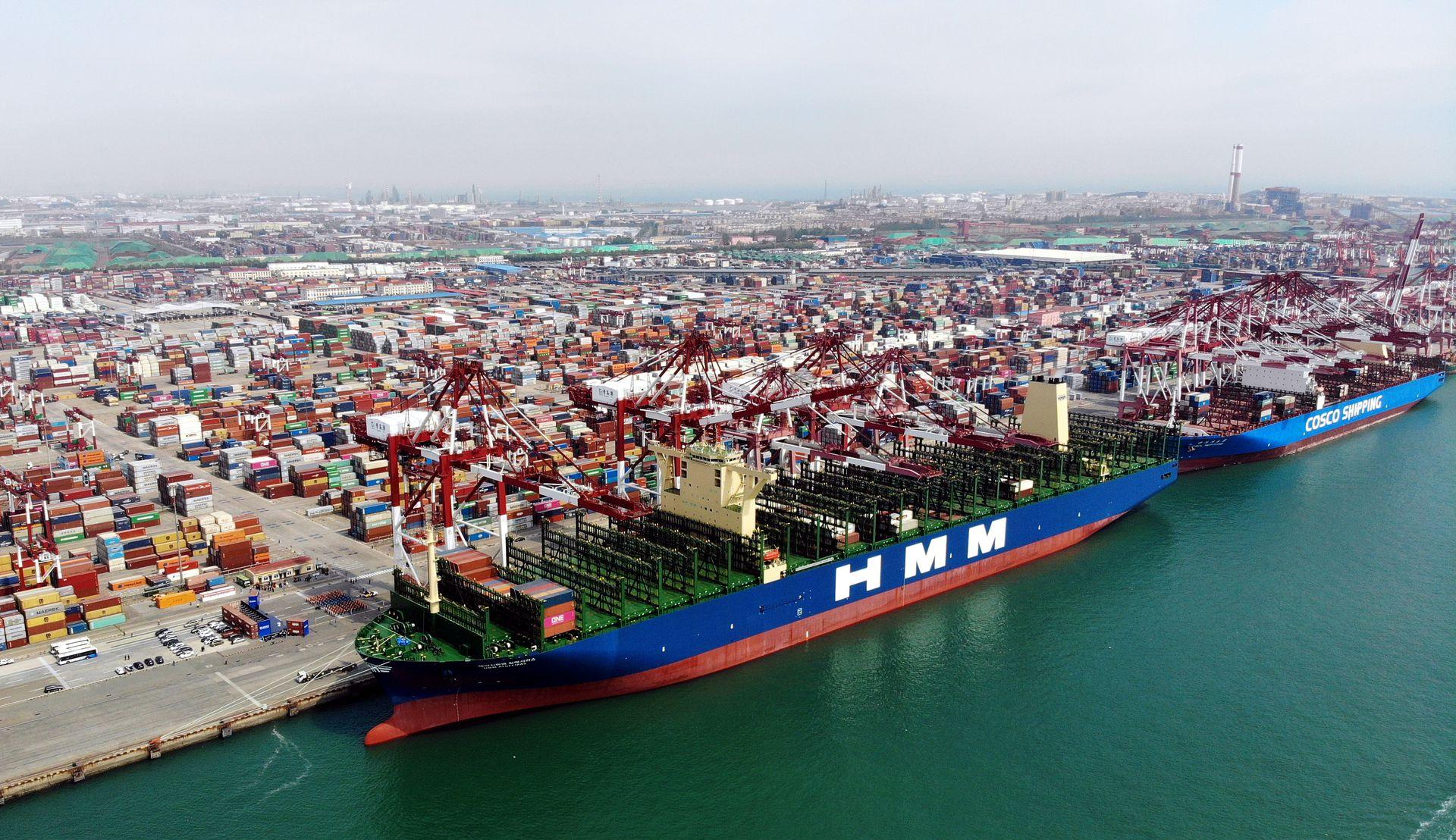
Author: Assassin
Since Suga's cabinet came to power in 2021, Japan has embarked on the anti-China "highway" and tied its life to the US anti-China chariot, becoming a sharp knife for the United States to deal with China in Asia. However, Japan's anti-China campaign has to take huge risks, not only security issues, but more importantly, Japan's economy and people's livelihood will be in danger.
Japan is an island nation, and its domestic needs are heavily dependent on imports. What Japan fears most now is that once the supply chain is broken, the country will be messed up. According to the Global Times reported on the 6th, a report released by the Japanese Cabinet Office a few days ago shows that Japan imports more goods from China than the United States, and if this trade structure is maintained, once China refuses to export, Japan will face risks.
The report, titled Trends in the World Economy, analyzes the structure of trade between major countries and China, and concludes that in 2019, the total imports of the United States, Germany and Japan to China were 18.1%, 8.5% and 23.3%, respectively. Of the roughly 5,000 categories of goods imported from China, Japan has 1,132, while the United States and Germany have 590 and 250, respectively. Obviously, Japan is the most dependent on Chinese imports compared to other major countries.
Not only that, but the dependence of Japan's export trade on the Chinese market is also increasing year by year. The Nihon Keizai Shimbun reported on January 22 that the ratio of exports to China to Japan's total exports stabilized at 17% to 19% throughout the 2010s, but increased to 22% in 2020. China exports more than 18.4% to the United States, making it Japan's largest exporter again after two years. The RCEP eliminated 86% of Japan's exports to China, making Japan more dependent on the Chinese market.
Especially since the outbreak of the new crown epidemic, China has become almost the only market in Japan to achieve a trade surplus. It is no wonder that the New York Times said in the report that China has mastered the faucet switch of Sino-Japanese trade, and once it is turned off, it will be a disaster for the Japanese economy.
Therefore, since the deterioration of Sino-Japanese relations, although the right-wing forces in Japan have continued to speak wildly about China, Japanese business people are worried about this. The reason is simple: as China's influence in the global economy continues to increase, it is basically impossible for Japan to replicate the "political cold and economic heat" model of Sino-Japanese relations at the end of the last century. If Sino-Japanese relations continue to deteriorate, the result may be a situation of "cold politics and economic coldness" that worries the Japanese business community the most.
In recent years, the Japanese government has ignored the concerns of the domestic business community and blindly followed the United States on the anti-China road of no return. A few days ago, the Japanese parliament also passed the so-called "human rights bill," which launched provocations against China on sensitive issues such as Hong Kong," Xinjiang, and Tibet, with the intention of adding fuel to the fire of Sino-Japanese relations, which were already in a state of high tension.
Since last year, Japan has rarely broken the bottom line of its decades-long diplomacy with China, openly making irresponsible remarks on the Taiwan issue, and has great intentions to destroy Sino-Japanese relations. But in fact, while following the United States in its anti-China campaign, Japan has left itself some room for maneuver behind its back. The reason is that they are afraid of "retaliation" from the Chinese side.
China has now built up its own counter-provocative toolbox and is well positioned to strike targeted attacks against any country, institution or individual that touches China's bottom line. Therefore, according to the Global Times reported on the 4th, the United States has always hoped that Japan will provide infrastructure assistance funds to Asian countries to counter China's growing economic influence in Asia. At the same time, the United States also asked Japan to adopt a strict export restriction policy with China like the United States, but Japan refused the United States' request for fear of retaliation.
After all, Japan's trade exports and commodity imports are heavily dependent on China, and once Sino-Japanese relations fall to an irreparable point, the result will be a disaster for Japan's economy and people's livelihood. At that time, Japan will not only suffer a heavy economic blow, but also because China refuses to export to Japan, resulting in an inflation crisis similar to the current United States due to supply chain disruption. Kishida's cabinet should know better than anyone that Japan cannot afford a complete reversal of face with China.
In addition, affected by the continuous deterioration of Sino-Japanese relations, the warships and warplanes of the Chinese Navy and Air Force, which routinely carry out cruise training missions in the surrounding areas of Japan, have a deterrent effect on Japan, which can not only effectively curb its military attempts to intervene in the Taiwan Strait, but also make it clear to the Tokyo authorities that provoking China will pay a price.
Therefore, the reason why China has not taken relevant countermeasures against Japan as it did against Australia is largely because Japan's provocative behavior is basically maintained at the ideological level. After all, Japan does not dare to launch sanctions against Chinese entities or individuals like the United States, let alone provoke trade frictions with China. It is obvious that Japan not only lacks this kind of strength, but also fears being countered by China.